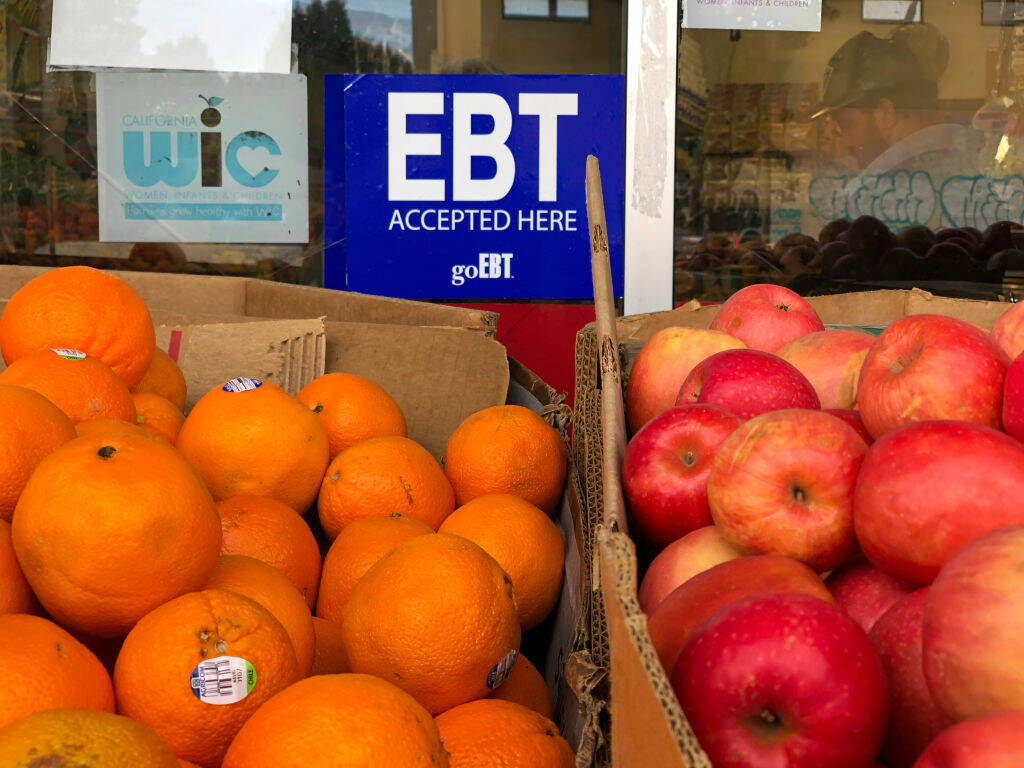A sign noting the acceptance of electronic benefit transfer (EBT) cards that are used by state welfare departments to issue benefits is displayed at a grocery store on Dec. 4, 2019, in Oakland, California. (Photo by Justin Sullivan/Getty Images)
In January, 10 Alaskans sued the state because they said the Department of Health failed to provide food stamps within the time frames required by federal law. The state has been able to push pause on litigation since last year, but now it has to begin the process.
District Judge Sharon Gleason wrote in a court order that further delays would be “inefficient” and noted that the state has now had a year to try and resolve its backlog.
The court granted the state a series of stays, or pauses in the process, to allow it to work on its problems. Last May the stay was contingent on a pledge the state made to cut its backlog in half. The state did so, but then incurred another large backlog.
Saima Akhtar, an attorney representing the case against the state, said by email on Tuesday that “pushing the case forward in litigation seemed the best way to seek a permanent and real resolution for ongoing problems in SNAP processing in Alaska.”
She said that her clients were opposed to further delaying the case because there was a backlog of thousands of Alaskans without benefits as the second stay was reaching an end in late October 2023.
The lawsuit was filed against Alaska Health Commissioner Heidi Hedberg. It said that in her role as commissioner of a department that failed to provide needed services, Hedberg “has subjected thousands of Alaskans to ongoing hunger and continues to do so.”
Last week, officials from the Department of Health reported that its most recent backlog is down to roughly 3,500 applications. To get there, the Division of Public Assistance is paying staff for significant overtime hours, as well as waiving federally required application interviews and verifications. Commissioner Hedberg called the latter two measures “tough decisions”; they prompted a warning from the federal government that said the state is jeopardizing its federal funding if it continues to break the rules.
• Claire Stremple is a reporter based in Juneau who got her start in public radio at KHNS in Haines, and then on the health and environment beat at KTOO in Juneau. This article originally appeared online at alaskabeacon.com. Alaska Beacon, an affiliate of States Newsroom, is an independent, nonpartisan news organization focused on connecting Alaskans to their state government.

